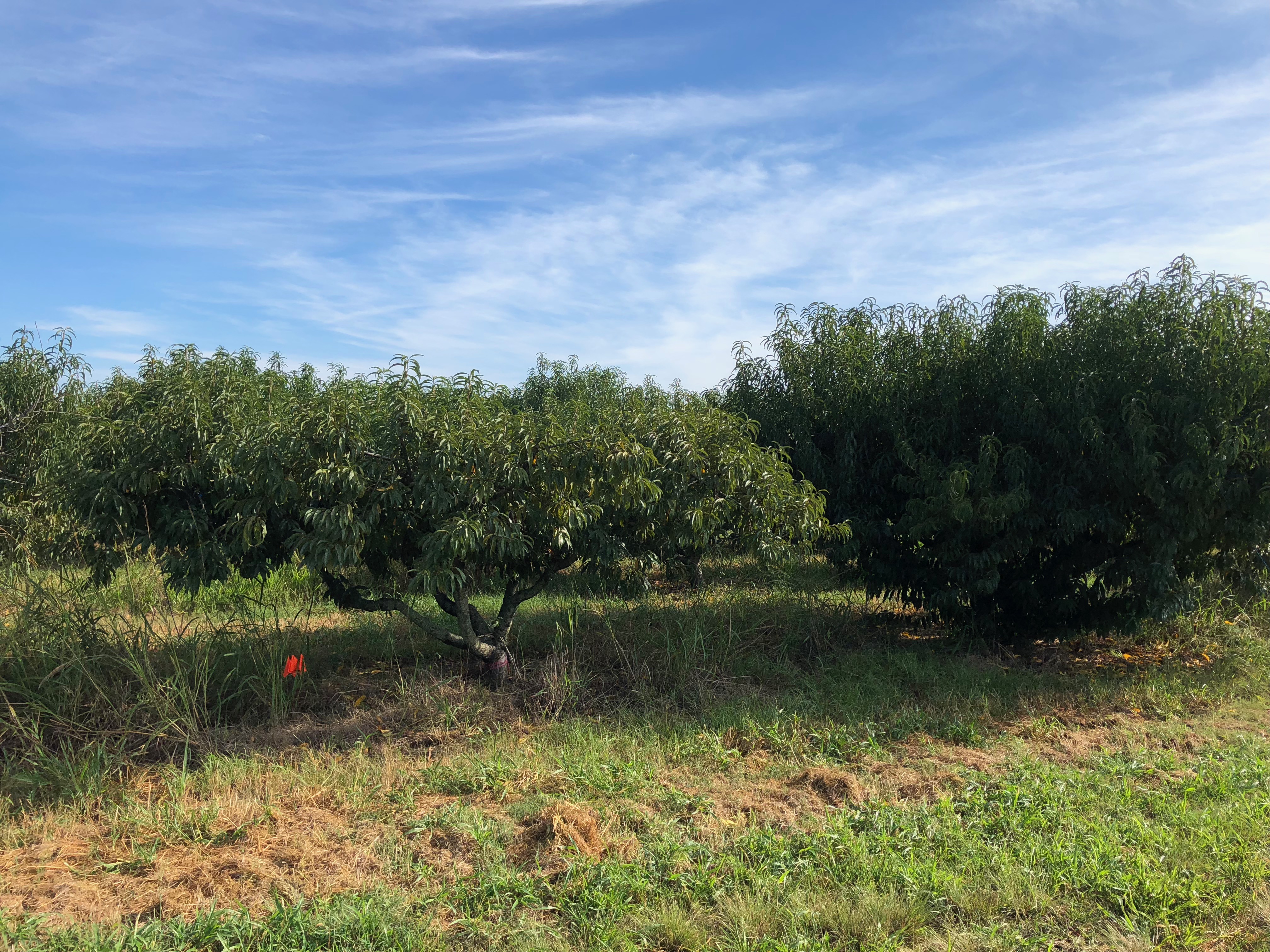Phony Peach Disease
The Georgia peach industry is facing significant challenges that include increasingly frequent unfavorable climate, decline in available labor, increasing international competition, spread of exotic pests and pathogens, consumer demands for improved fruit, and a desire for alternatives to chemical inputs. Phony peach, caused by Xylella fastidiosa subspecies multiplex, is an important yield-limiting disease that reduces fruit size and quality, and results in premature tree decline and plant death. Georgia winter temperatures have increased in recent decades, allowing year-round vector activity, possibly greater bacterial survival in the tree, and overall greater risk of exposure and infection. UGA plant pathologists conducted surveys of visible disease symptoms (disease incidence) in mature peach orchards across Georgia. Based on this survey, phony peach is prevalent only in middle and south Georgia. But where it occurs, some orchards are experiencing high disease incidence. Symptomatic trees need to be rapidly removed to prevent insect vectors (sharpshooter insects) from further spreading the bacterium that causes phony peach. To test the ability of trained individuals to assess phony peach from symptoms, visual assessment trials were conducted with volunteers, some of whom were experienced raters and some were newly trained. Overall, disease identification has proven difficult, with only about 76 percent accuracy by experts who were tested for accuracy where trees were confirmed to have the disease by molecular testing. The plant pathologists concluded that visual assessment for phony peach is not an accurate detection method, and further research is needed to develop and validate alternative, rapid, accurate and reliable methods of detection to aid management of phony peach. Accurate assessment and early detection are critical to developing a better understanding of the disease, while also providing rapid and accurate diagnosis that can lead to early removal of infected trees, slowing the epidemics and increasing orchard longevity and overall production.
Read the full impact statement
Related Impact for Plant Production
- Advanced Peanut Genetics 2020
- Completing the peanut genome sequence 2020
- Determining Best-performing Crop Cultivars 2020
- Georgia Grown Lavender 2020
- New Ornamental Plants 2020
- Peanut seed treatment crisis 2020
- Plant Molecular Diagnostic Lab 2020
- Spotted-Wing Drosophila in Blueberries 2020
- Turfgrass Physiology 2020

